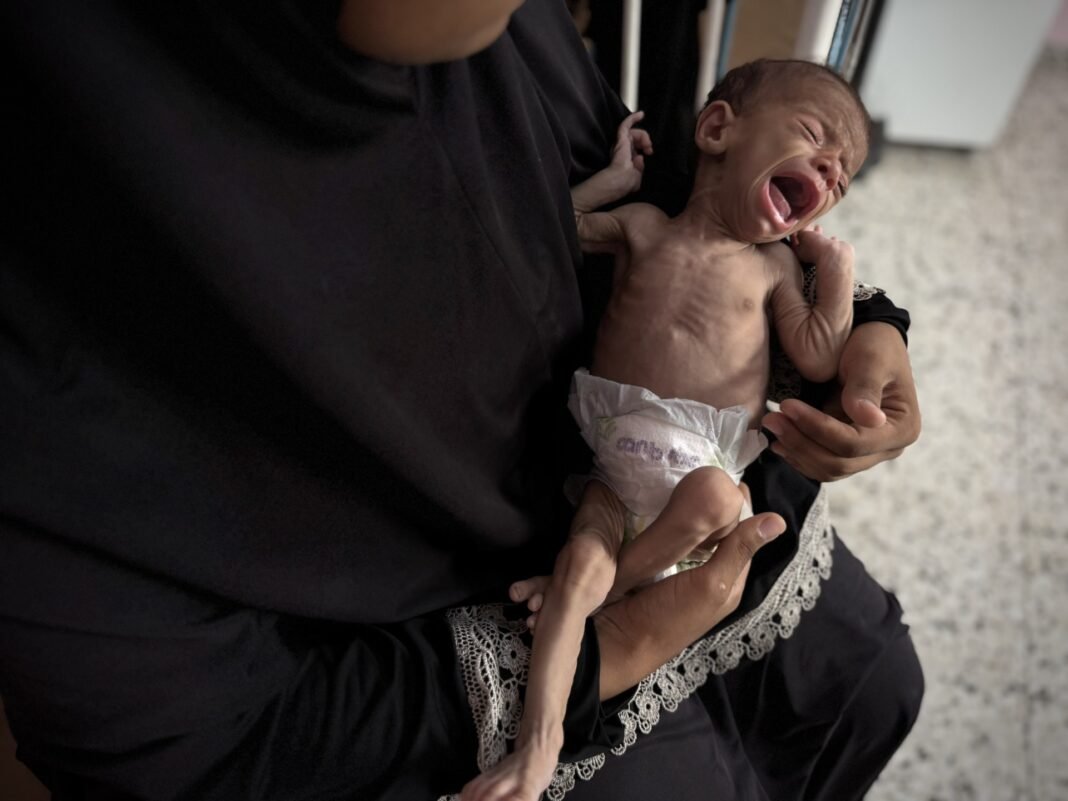Critical Infant Malnutrition Crisis in Gaza Amid Ongoing Blockade
In the Gaza Strip, Palestinian mothers are confronting an alarming shortage of infant formula due to the persistent blockade imposed by Israel. This scarcity has forced manny caregivers to dilute formula with water or create makeshift mixtures from whatever food is available, placing newborns at significant risk of malnutrition and related health complications.
How Mothers and Infants Are Suffering
Healthcare workers report a widespread deficiency in maternal nutrition, which drastically reduces breastfeeding capabilities. Thousands of children under two years old are currently facing severe starvation because adequate milk supplies are unavailable.
“Many mothers are too malnourished themselves to produce enough breast milk,” explained a local pediatrician. “Consequently, infants receive unsafe substitutes such as watered-down liquids or crushed legumes that can lead to serious illnesses.”
The Extreme measures Families Resort To
A mother from Gaza City described her desperate attempts to feed her four-month-old daughter by mixing tahini with water-a substitute she fears may harm her child’s fragile health.
“I use this paste instead of milk but she often refuses it. sometimes I give her only water or herbal teas like caraway because there is nothing else available,” she shared.
The Widespread Humanitarian Emergency
The blockade enforced as October 2023 has severely restricted access not only to infant formula but also essential food supplies, clean drinking water, medicines, and other critical aid items throughout Gaza. Hospitals have documented at least 159 deaths directly linked to starvation during this period-90 of whom were children under five years old.
The United Nations continues highlighting the extreme vulnerability faced by Palestinian children amid this crisis and calls for unrestricted humanitarian access into the region without delay.
Tensions Surrounding Aid Delivery Channels
Israel attributes part of the crisis to alleged mismanagement by international organizations responsible for aid distribution; though, multiple governments and UN representatives dispute these claims as inaccurate.They emphasize that Israel maintains strict limitations on safe passage for humanitarian convoys entering Gaza territory.
Airdrops intended as emergency relief have been widely criticized for their inefficiency and potential dangers rather than effectively addressing hunger needs on the ground.
Difficulties at border Crossings
The UN deputy spokesperson reported ongoing challenges: despite official statements about secure convoy routes through crossings like Kerem Shalom (Karem Abu salem), trucks frequently encounter lengthy delays caused by Israeli military checkpoints along these paths-exposing drivers and aid personnel to risks while slowing down vital deliveries significantly.
The perilous Reality for palestinians Seeking Assistance
Starvation-driven desperation has pushed many Palestinians toward distribution centers operated by controversial groups supported by Israel and the united states collectively known as GHF (Gaza Humanitarian Foundation). Tragically, dozens have lost their lives when Israeli forces opened fire near these sites over recent weeks-including at least 23 individuals shot while waiting near Netzarim junction in central Gaza alone.
An international Response Under Intense Scrutiny
This violence persists even as US officials prepare visits inside Gaza aimed at evaluating conditions firsthand amid growing concerns about accountability related to more than 1,000 deaths around GHF distribution points as May 2025.The continued operation of these centers reflects political pressures within Israel despite widespread global criticism accusing GHF activities of violating essential humanitarian principles designed to protect civilians during conflicts.
A Plea for Dialog Amid Enduring Hardship
Hamas has publicly expressed readiness “to promptly” engage in peace negotiations contingent upon ensuring that humanitarian aid reaches those most affected-and famine across Gaza’s population ends before any ceasefire talks advance further.
lived Experiences: Voices from Affected Families
Nehma Hamouda recounted caring for three-month-old Muntaha after losing Muntaha’s mother-who was fatally injured while pregnant-in earlier violence:
“The baby cannot eat solids yet; I try giving tea or strained lentil broth from local kitchens when possible,” says Hamouda.“There is no sugar or proper formula anywhere-I do what little I can.”





